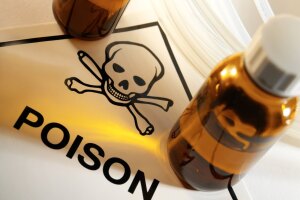What happens in my body during withdrawal? How long does it take my head to get clean? Is there a vaccination against drugs? Toxicologists, psychologists and doctors explain why our brain poisons itself and what the consequences are when we go to war against addiction.
Body health
Poisonings are among the greatest dangers our organism can be exposed to. Different toxins affect different parts of the body and often the dosage determines life or death.
In many ways, people with Alzheimer’s seem to behave like children. But it is not by choice. Because of the disease, they no longer know what they are doing – and they suffer greatly as a result. The psychiatrist Alois Alzheimer first made the link between changes in the brain and the gradual loss of memory.
What if we were able to cure even the most serious illness using only the power of our thoughts?
Sleep deprivation increases the risk of depression and promotes obesity. These ten tips can help you get a good night’s sleep.
A survey conducted by Harvard University in the United States found that 44 percent of working adults say that their work affects their health. In Germany, Techniker Krankenkasse conducted a survey which revealed that 64 percent of Germans suffer from stress at least occasionally and 26 percent report that they suffer from stress frequently.
Anyone who has ever been tickled for longer than a few seconds knows that it can be real torture – our body compels us to laugh as a reflex. However, anyone who tries to tickle themselves will invariably fail. Why is that?
Just ten minutes of acute oxygen deficiency can cause irreparable damage to our brain. If it lasts longer, we become unconscious and fall into a coma.
Neuroscientists can peer into our brains and read what we are thinking. There are also less chilling possibilities, such as prosthetics that can be controlled by the power of thought.
Soldiers in crisis areas or aid workers on disaster relief missions often have traumatic experiences. The images, sounds and smells remain with some people for the rest of their lives. What happens in our brain? And can trauma be healed?












